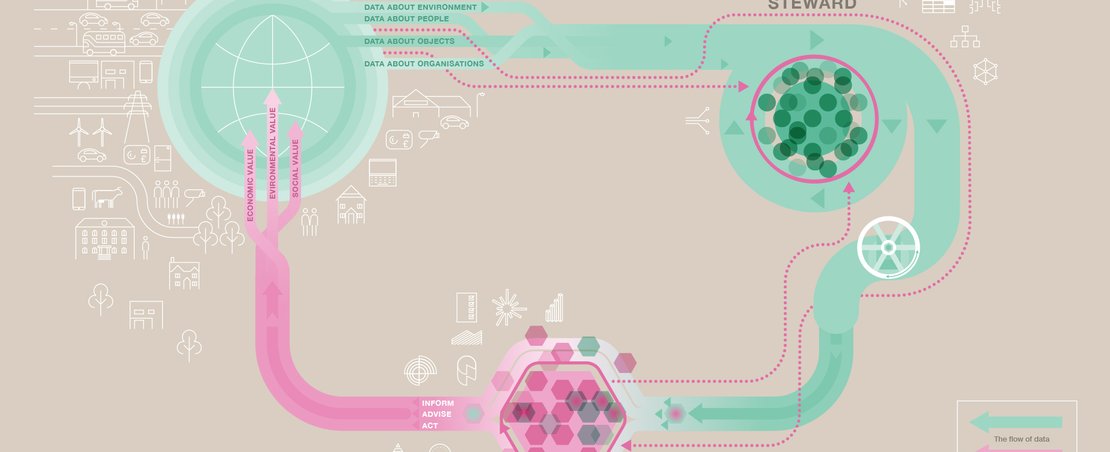
The ODI has been working with the Bennett Institute for Public Policy – supported by funding from the Nuffield Foundation – to investigate the ways in which data stewards, data aggregators, data intermediaries, and others are valuing data, and what policy lessons can be learned
Our report – The Value of Data – has found that realising the full value of data will be heavily dependent on the policies we have for it, how it is used, and in what context.
For the research, we interviewed people working in artificial intelligence, academia, business consulting, healthcare, and elsewhere, giving us a spread of insight into expertise on how data is being collected, shared, and used, and hence how data is valued – or not – across a number of fields.
Gathering experience from a wide range of sectors helped us to see how different types of data, for different uses, are valued, confirming that the wide range of estimates for the value of data in the modern economy means that we are early in the process of understanding when data gains in value, or is worthless. A report by the European Data Portal collected estimates for the value of data across a number of economies, from low-end figures by the Open Data Institute – 0.1 to 1.4% of GDP – to McKinsey’s 4.26 to 7.19%.
Key findings from the report:
- The value of data is potentially limitless but hard to quantify. The report argues that ‘economies and societies that find ways to unlock the value of data and distribute it fairly will be at an advantage’.
- None of the methods we currently have to put a value on data are effective, but that doesn’t mean it doesn’t have value. The value of data is realised in how it is used and dependent on context.
- It isn't helpful to think about policy just in terms of 'personal' data. There are lots of other types. Very little of the valuable content of data refers only to one individual, and a lot of the wider value to society comes from aggregating data.
- We don’t know how data might be used in the future, so policymakers and researchers should avoid creating conditions that might limit its use. For example by creating complex and restrictive regulation around data, or granting exclusive ‘data access deals’ to private companies.
- Access to data is crucial to its value. The more accessible data is, the greater its social worth, subject to risk and investment considerations. Restricting access to data limits who can use it to develop a product or service, and who can use it to make decisions. Trustworthy data institutions could help increase access to data.
- The market alone will not enable the economy and society to realise the full value of data - the government needs to shape data markets and data use.
- The government needs to make public sector data more accessible and consider a range of ways in which greater access to private sector data could enable innovation and economic growth.
Many studies on the value of data treat it as homogenous, but it’s not. The ODI has long argued against the notion of ‘big data’, not least because it distracts attention from thinking about what uses are allowed by given datasets. To get a more sophisticated handle on the value of data, our report looks at it through two lenses: economic, and informational.
Economic characteristics of data
- Data is non-rival.
- Data varies in whether it is excludable.
- Data involves externalities.
- Data may have increasing or diminishing returns.
- Data has a large option value.
- Data collection often has a high up-front cost and low marginal cost.
- Data use requires complementary investments.
Informational characteristics of data
- What is the data about?
- How general purpose is the data?
- What temporal coverage does the data have?
- What is the quality of the data?
- How sensitive is the data?
- How interoperable and linkable is the data?
Our report discusses what policymakers could do to better incorporate these characteristics into how social welfare is maximised from data sharing.
----
If you have comments or experience that you'd like to share, pitch us a blog or tweet us at @ODIHQ.